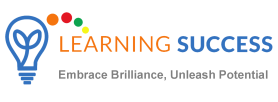According to the Iowa Reading Research Center in Iowa City, existing background knowledge in the brain supports overall reading comprehension. Basically, background knowledge is information that you have already learned and retained about a particular topic. When good readers begin to read, their brains are stimulated by topical information contained in the text. They start to connect their existing knowledge with the new knowledge that they are reading. The brain then adds new categories of information, which can be accessed in the future.

Providing Just the Right Amount of Background Knowledge to Support Reading Comprehension
Simply put, background knowledge is what you already know or have learned about a topic.
When this phenomenon occurs, a reader’s comprehension increases. With every new reading experience, readers will link and grow their knowledge, increasing their ability to comprehend a variety of texts. The purpose of building background knowledge is to harness a reader’s curiosity and channel it in a way that supports their reading comprehension. Giving students just enough to get them going will facilitate building on their knowledge and further enjoying the reading process.
Key Takeaways:
1
Scaffolding learning is the way we all learn automatically as each piece of knowledge builds off another.
2
Researchers realized these past experiences assisted in early literacy.
3
Each new piece of information makes for steady growth in knowledge.
Author: Iowa Reading Research Center
Author Quote
“
They begin to connect that existing knowledge with new knowledge they are encountering in the text, adding to or making new categories of information in the brain to be accessed in the future.
”
